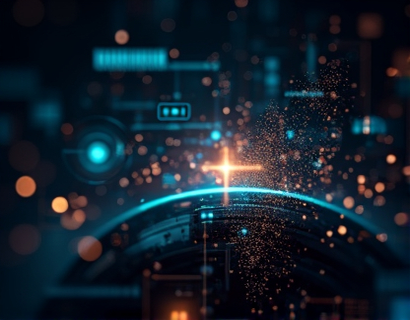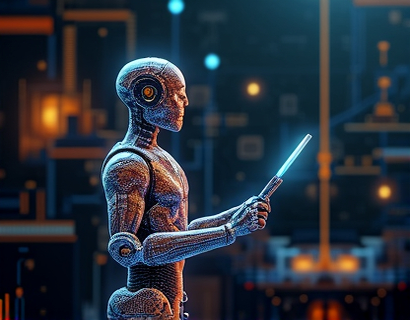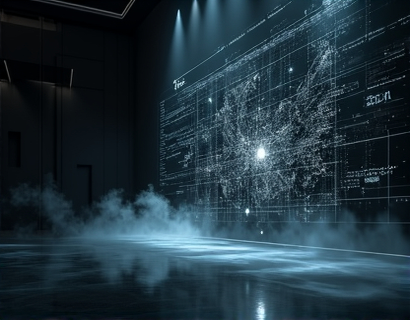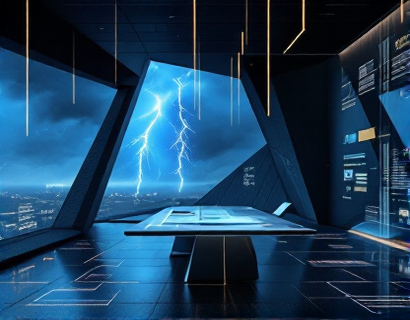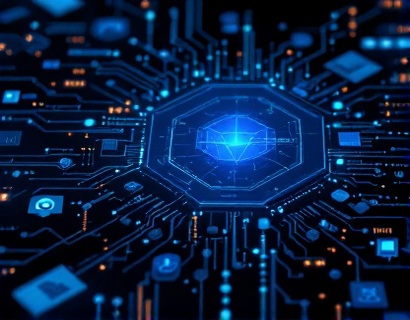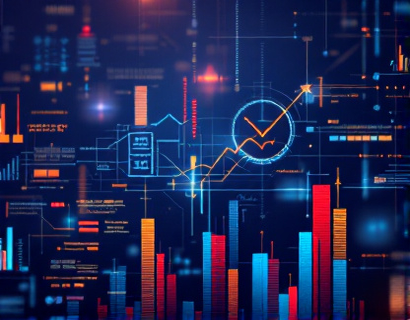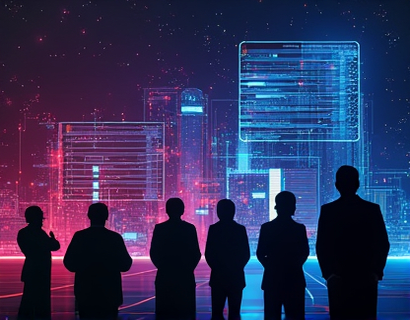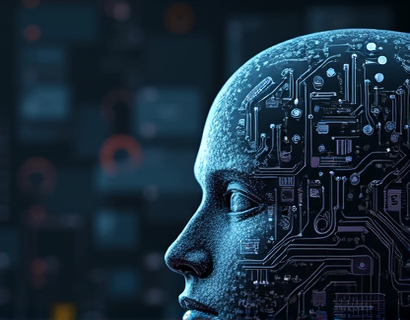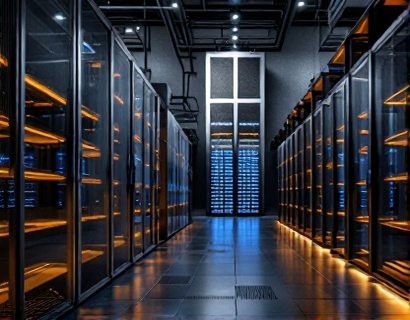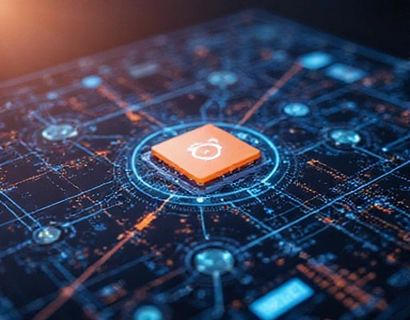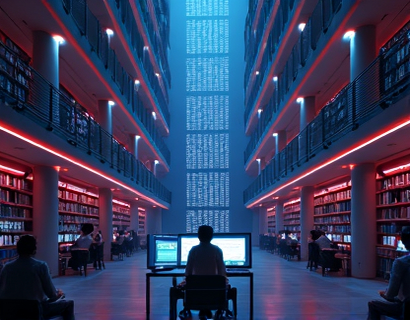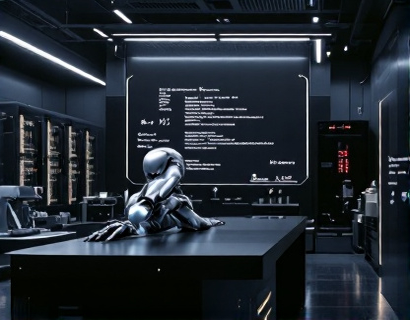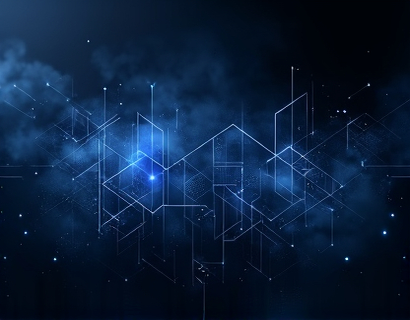Decentralized DAOs: Transforming Web3 Governance with Community Empowerment and Transparency
In the rapidly evolving landscape of Web3, decentralized autonomous organizations (DAOs) are emerging as a revolutionary force, redefining the way governance is handled within digital ecosystems. These community-driven models are not just a theoretical concept but a practical approach to enhancing collaboration, transparency, and scalability. This article delves into the transformative impact of DAOs on Web3 governance, exploring how they are shaping a more interconnected and future-proof digital world.
At their core, DAOs operate on blockchain technology, leveraging smart contracts to automate decision-making processes. This decentralized approach eliminates the need for intermediaries, allowing members to participate directly in the governance of protocols and projects. The foundational principle of DAOs is to distribute power among community members, ensuring that no single entity has monopolistic control. This democratization of governance is a significant departure from traditional hierarchical structures, fostering a more inclusive and equitable digital environment.
Enhanced Collaboration Through DAOs
One of the most compelling aspects of DAOs is their ability to enhance collaboration among community members. By providing a platform for collective decision-making, DAOs encourage diverse perspectives and ideas, leading to more innovative and well-rounded solutions. This collaborative environment is particularly beneficial in the Web3 space, where complex technical and strategic decisions need to be made. For instance, in the development of decentralized finance (DeFi) protocols, DAOs enable developers, users, and stakeholders to align their goals and work towards common objectives, reducing the risk of misalignment and conflict.
Moreover, the transparency inherent in DAOs fosters trust among participants. All proposals, votes, and transactions are recorded on the blockchain, making the governance process fully auditable. This level of transparency not only builds trust but also encourages active participation, as members can see the direct impact of their contributions. In a traditional governance model, such transparency is often lacking, leading to skepticism and disengagement. DAOs bridge this gap, creating a more engaged and motivated community.
Transparency as a Pillar of DAO Governance
Transparency is not just a feature but a core value in DAO governance. The immutable nature of blockchain ensures that all actions within a DAO are permanent and verifiable. This permanence means that past decisions cannot be altered or hidden, providing a clear and unambiguous record of the governance process. Such transparency is crucial in building trust within the community, as members can confidently participate knowing that their voices are heard and their contributions are valued.
Furthermore, the open-source nature of many DAOs allows for continuous scrutiny and improvement. Community members can review and audit the smart contracts that govern the DAO, identifying potential vulnerabilities or inefficiencies. This ongoing process of improvement ensures that the DAO remains adaptable and resilient, capable of evolving with the changing needs of the community. In contrast, centralized governance models often suffer from opacity, making it difficult for stakeholders to hold leaders accountable.
Scalability and Efficiency in DAO Governance
Scalability is a critical challenge in the Web3 ecosystem, and DAOs offer a promising solution. By automating governance processes through smart contracts, DAOs can handle a large number of participants without the overhead associated with traditional hierarchical structures. This automation reduces the administrative burden, allowing the community to focus on strategic decision-making rather than routine tasks. As a result, DAOs can scale more efficiently, accommodating growth without sacrificing performance.
Additionally, the decentralized nature of DAOs enables faster decision-making. In a centralized model, decisions often require approval from a small group of leaders, which can be time-consuming and bureaucratic. In a DAO, proposals can be submitted, discussed, and voted on almost instantaneously, thanks to the blockchain's real-time capabilities. This speed is particularly advantageous in the fast-paced world of Web3, where rapid responses to market changes can be the difference between success and failure.
Case Studies: Successful DAOs in Web3
Several notable DAOs have already demonstrated the potential of this governance model in the Web3 space. One prominent example is the MakerDAO, which manages the stablecoin DAI on the Ethereum blockchain. MakerDAO's DAO allows token holders to propose and vote on changes to the protocol, ensuring that the system remains stable and responsive to user needs. This community-driven approach has been instrumental in maintaining the value and reliability of DAI, even in times of market volatility.
Another successful DAO is the Aragon platform, which provides a suite of tools for building and managing decentralized organizations. Aragon's DAO enables users to create custom governance models tailored to their specific needs, fostering a diverse ecosystem of DAOs across various projects. This flexibility has made Aragon a hub for innovation in decentralized governance, attracting a wide range of projects and communities.
Challenges and Considerations
Despite the numerous benefits, DAOs are not without challenges. One significant issue is the technical barrier to entry. Understanding blockchain and smart contracts requires a certain level of technical knowledge, which can exclude less tech-savvy participants. To address this, educational resources and user-friendly interfaces are essential in making DAOs accessible to a broader audience.
Another challenge is the potential for governance attacks, such as sybil attacks, where a malicious actor creates multiple pseudonymous identities to gain undue influence. Robust security measures and community vigilance are necessary to mitigate these risks. Additionally, the legal and regulatory landscape for DAOs is still evolving, and clarity is needed to ensure compliance and protect participants.
The Future of DAOs in Web3
As the Web3 ecosystem continues to mature, the role of DAOs is likely to become even more prominent. The principles of community empowerment, transparency, and scalability align perfectly with the goals of Web3, making DAOs a natural fit for the next generation of digital platforms. The success of existing DAOs serves as a blueprint for future projects, demonstrating the potential for decentralized governance to drive innovation and inclusivity.
Looking ahead, we can expect to see more DAOs emerging across various sectors, from decentralized markets to social networks. The collaboration and knowledge sharing within the DAO community will continue to push the boundaries of what is possible, leading to more sophisticated and effective governance models. As more individuals and organizations recognize the value of DAOs, the adoption will accelerate, paving the way for a more decentralized and equitable digital future.
In conclusion, decentralized DAOs are transforming Web3 governance by empowering communities, enhancing transparency, and improving scalability. By embracing this collaborative and future-proof approach, we can build a more resilient and inclusive digital landscape. Join the movement towards a decentralized future, where the power of the community drives innovation and progress.




